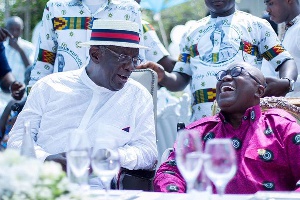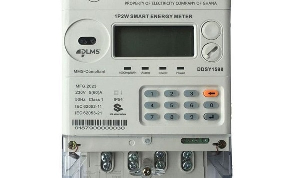Many students in both Ghana and Canada are going back to school for the 2024-2025 academic year. However, parents and students are anxiously looking forward to improvements in the quality of education at our schools as governments of both nations are politicking around students performing better with the government's envisaged ways forward.
In Ghana, both the political party in power NPP, and the largest opposition party- the NDC in their bid to win the impending December 7 presidential and parliamentary elections are promising the people of Ghana how they are planning to improve students' performance and quality of education in the country as a whole when voted into power.
Ghanaian voters now have the opportunity to critically study the educational policies presented in the manifestos of both parties recently launched in the country and vote for the best.
The National Democratic Congress (NDC) has laid out a blueprint aimed at revitalizing Ghana’s education system, highlighting severe shortcomings under the current New Patriotic Party (NPP) administration. Thus, the NDC under the leadership of former President John Dramani Mahama promised to reset the education system in Ghana if voted into power during the December 2024 elections in the country.
The NDC in their ongoing campaign is taking issues at the widespread neglect and infrastructural deficiencies plaguing the educational landscape, citing issues such as an erratic academic calendar, inconsistent curricula, and inadequate resources, which have resulted in declining educational outcomes across the board.
Interestingly, the NPP in their bid to retain power with Dr. Bawumia the Vice President of Ghana on top of their presidential ticket going into the 2024 national elections has promised Ghanaians a gifted, talented education as a game changer for Ghana’s future. They argue that this initiative is aimed at providing a tailored education program to nurture the unique talents of these students.
Dough Ford government in Canada is welcoming students back to school with a ban on the use of cellphones in Ontario schools to improve student learning inside the classroom.
According to news reports as students and teachers prepare for the first day of school, Ontario's new education minister says the province will support educators in enforcing a classroom ban on cellphones and vapes that takes effect Sept. 1.
The province-wide ban, announced in April, prevents students in kindergarten to Grade 6 from using their phones in the classroom "for the full instructional day," Education Minister Jill Dunlop said at a news conference Thursday.
"I want teachers to know, this is a new initiative. This is a culture change that's happening in our classrooms," Dunlop said, speaking at a public school in Caledon, Ont., approximately 65 kilometres northwest of Toronto.
However, educators in Ontario share some different opinions on banning the use of cell phones in their schools as a misplaced priority by the government. Karen Littlewood, president of the Ontario Secondary School Teachers' Federation, said there are bigger problems than cellphone usage facing the province's education system.
"We're ignoring overcrowded classes, hot classrooms, unqualified staff, and all the real issues in education," she said.
Littlewood said teachers have questions about the ban as individual school boards prepare policies that follow the government's rules.
As a veteran teacher, I am bothered by how our education system which should be run on national public policies has become a tool in the hands of dominant political parties to achieve their own ideological objectives at the detriment of national development for all.
Let us wake up now.
Opinions of Sunday, 1 September 2024
Columnist: Joseph Kingsley Eyiah



















